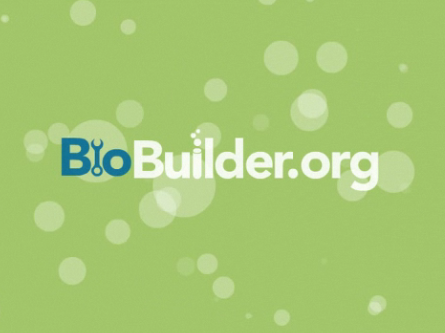BioBuilding2011 workshop @ MIT

Application
Link or download pdf
Information
You are invited to apply to the BioBuilding2011 workshop @ MIT. This week long, professional development class will prepare educators to bring biological engineering and synthetic biology into their classrooms and laboratories. The workshop will include
- lectures that connect the engineering/science/math and technology aspects of these fields
- labs and classroom activities taught from the online BioBuilder.org resource,
- lunchtime discussions with members of MIT’s synthetic biology community
- activities that address human practice questions such as the safety, security, economics and wisdom of engineering novel biological systems
This workshop will run from August 1st-5th, 2011. Attendees will receive a $500 stipend, lunch each day, parking validation and 67.5 PDPs. Attendees must commit to carry out a BioBuilder activity in the 2011-2012 academic year, and provide feedback on the effort.
Who should apply?
This workshop is intended for:
- High school Biology teachers, especially those looking for new ways to teach the AP content or for compelling material to teach college-bound students after the AP exam is completed
- College level instructors looking for classroom and lab curricula to include in a biotechnology-style class
- Science Club leaders, in particular anyone looking for ways to bring cutting-edge content to students with a variety interests from math to biology to electronics.
How to apply?
Send a copy of your CV and a completed application to the following address:
Dr. Natalie Kuldell
Department of Biological Engineering, MIT
77 Mass Ave, 16-325
Cambridge, MA 02139
The application is online here or can be downloaded here.
Applications are due March 15th, 2011 and applicants will be notified by April 1st, 2011.
Questions?
info AT biobuilder DOT org
GENERAL INFORMATION
What is Synthetic Biology?
Synthetic Biology is an emerging field that applies engineering and mathematical principles to the development of novel biological systems. These principles and technologies extend the teaching of molecular genetic techniques into real world, authentic applications. Examples of synthetic systems include bacteria that smell like bananas, and light-sensitive bacteria that can serve as pixels in a photograph. These teachable systems are included in the curriculum at Biobuilder.org.
Why teach Synthetic Biology?
Synthetic biology provides teachers and students an engineering context to learn molecular biology, genetic engineering and microbiology methods. This approach asks students to learn while designing, or testing designs of, engineered biological systems. In addition, this approach provides science teachers with a means of exploring numerous state and national technology standards that are hard to address in most science classes.
Who’s teaching BioBuilding2011?
- Dr. Natalie Kuldell
Natalie Kuldell teaches in the Department of Biological Engineering at the Massachusetts Institute of Technology. She develops discovery-based curricula drawn from the current literature to engage undergraduate students in structured, reasonably authentic laboratory and project-based experiences. She completed her doctoral and post-doctoral work at Harvard Medical School, and taught at Wellesley College before joining the faculty at MIT. Natalie is the director of a web-based resource called BioBuilder to teach synthetic biology as well as a scientific adviser for two web-projects to teach the nature and process of science, namely Understanding Science and VisionLearning.
- Jim Dixon
Jim Dixon has been teaching Biology and AP Biology at Sharon High School since 2004. He is recognized as a Massachusetts Master teacher, Presidential Distinguished Teacher, and holds a Nation Board Certification. Jim has a BS from Fordham University and an MS from the State University of New York at Buffalo. In addition to teaching at Sharon High School, he is the adviser for the Science Club and manages China Exchange program. Jim is particularly interested in developing curricula and assessments that makes science curriculum more meaningful to students. He has developed science curricula with Grant Wiggins, Harvard University and MIT.
Lunchtime seminars from members of SynBERC and MIT’s Department of Biological Engineering (faculty TBA)
Stay tuned for additional information and links!